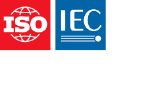Тезис
ISO/IEC 25024:2015 defines data quality measures for quantitatively measuring the data quality in terms of characteristics defined in ISO/IEC 25012.
ISO/IEC 25024:2015 contains the following:
- a basic set of data quality measures for each characteristic;
- a basic set of target entities to which the quality measures are applied during the data-life-cycle;
- an explanation of how to apply data quality measures;
- a guidance for organizations defining their own measures for data quality requirements and evaluation.
It includes, as informative annexes, a synoptic table of quality measure elements defined in this International standard (Annex A), a table of quality measures associated to each quality measure element and target entitiy (Annex B), considerations about specific quality measure elements (Annex C), a list of quality measures in alphabetic order (Annex D), and a table of quality measures grouped by characteristics and target entities (Annex E).
This International Standard does not define ranges of values of these quality measures to rate levels or grades because these values are defined for each system by its nature depending on the system context and users' needs.
This International Standard can be applied to any kind of data retained in a structured format within a computer system used for any kinds of applications.
People managing data and services including data are the primary beneficiaries of the quality measures.
This International Standard is intended to be used by people who need to produce and/or use data quality measures while pursuing their responsibilities.
- Acquirer (an individual or organization that acquires or procures data from a supplier).
- Evaluator (an individual or organization that performs an evaluation, which can, for example, be a testing laboratory, the quality department of an organization, a government organization, or a user).
- Developer (an individual or organization that performs development activities including requirements, analysis, design, implementation, and testing data during the data-life-cycle).
- Maintainer (an individual or organization that performs operation and maintenance activities of data).
- Supplier (an individual or organization that enters into a contract with the acquirer for the supply of data or service under the terms of the contract).
- User (an individual or organization that uses data to perform a specific function).
- Quality manager (an individual or organization that performs a systematic examination of the data).
- Owner (an individual or organization that takes responsibility for the management and financial value of the data with the legal authority and responsibility to establish for them evaluation, collections, access, dissemination, storage, security, and cancellation).
ISO/IEC 25024:2015 takes into account a large range of data of target entities.
It can be applied in many types of information systems, for example, such as follows:
- legacy information system;
- data warehouse;
- distributed information system;
- cooperative information system;
- world wide web.
The scope does not include the following:
- knowledge representation;
- data mining techniques;
- statistical significance for random sample.
Общая информация
-
Текущий статус: ОпубликованоДата публикации: 2015-10Этап: Подтверждение действия международного стандарта [90.93]
-
Версия: 1
-
Технический комитет :ISO/IEC JTC 1/SC 7ICS :35.080
- RSS обновления
Жизненный цикл
-
Сейчас
ОпубликованоISO/IEC 25024:2015
Стандарт, который пересматривается каждые 5 лет
Этап: 90.93 (Подтверждено)-
00
Предварительная стадия
-
10
Стадия, связанная с внесением предложения
-
20
Подготовительная стадия
-
30
Стадия, связанная с подготовкой проекта комитета
-
40
Стадия, связанная с рассмотрением проекта международного стандарта
-
50
Стадия, на которой осуществляется принятие стандарта
-
60
Стадия, на которой осуществляется публикация
-
90
Стадия пересмотра
-
95
Стадия, на которой осуществляется отмена стандарта
-
00


